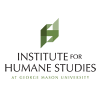


This five-day intensive course investigates the ethical dimensions of attention. We live in the attention economy, where attention is commodified and manipulated. Attentional crises abound: big tech, social media, and the pandemic have eroded people’s attentional capacities. Attention, though, is paramount to personal and institutional flourishing. Attending to people, places, and projects is at the heart of love, community, justice, good relationships, creativity, art, education, and mental health. It is also a central, but overlooked, component of justice. We can wrong each other with attention patterns. Improper attention can also create unfair and dangerous social disparities; scientists might overlook medical differences between women and men, for example, and fail to notice this oversight. And yet theorists lack adequate frameworks for conceptualising and assessing this. There is a dearth of research on attention, and the ethics of attention is seldom featured in university courses.
The summer school aims to remedy this. Participants first survey major theories of attention, including Asian philosophy, analytic philosophy, and psychology. They then apply these frameworks to real-life case studies about technology, media, advertising, power, prejudice, bias, colonialism, art, love, religion, self-improvement, mental health, science research, and skepticism about vaccines, pandemics, and climate change.
The course is taught by leading thinkers in the philosophy of attention. Participants have the chance to present their own research, develop new ideas, and co-create new teaching resources on the philosophy of attention. This course is ideal for advanced PhD students and early career scholars in philosophy and related disciplines, including psychology, neuroscience, media, and politics. We will also consider applications from mid-career and senior scholars.
Target Group
The program encourages applications from students and researchers at the graduate, postdoctoral, and early career levels, in philosophy and related fields, including but not limited to psychology, neuroscience, media, and politics. We particularly welcome individuals with a proposed research project significantly involving the normativity of attention, which they can develop during the course. We also welcome those simply with a keen interest in the ethics of attention. We also invite applications from advanced undergraduate students who have adequate prior study or engagement experience on the subject and make a compelling case in their application/statement of interest. We have a particular interest in encouraging those from the Global South to apply.
Pre-requisites
A strong command of spoken and written English is a pre-requisite. Some knowledge of work on the topic of attention is recommended. Those who join the course are encouraged to bring examples of sources they are using in their current projects as part of a sources and methods workshop, as well as for highlighting in a final presentation.
Language requirements
The language of instruction is English; thus all applicants have to demonstrate a strong command of spoken and written English to be able to participate actively in discussions at seminars and workshops. Some of the shortlisted applicants may be contacted for a telephone interview.
This course will focus on the following discipline areas:
- Philosophy
- Ethics
- Politics
- Psychology
- Media
- Cognitive Science
Please read the following directions carefully.
Below is the list of the documents you need to prepare or arrange for submission:
1. Completed Online SUN Application Form (see notes below)
2. Full Curriculum Vitae or Resume, including a List of Publications, if any
Please upload your Curriculum vitae or resume, including a list of publications, if any.
3. Statement of Purpose (max.1 page)
In the Statement of purpose, please describe how the course is relevant to your teaching, research, or professional work, and in what way you expect to benefit from it. You are encouraged briefly to outline a project on attention that you are working on, or would like to begin working on. Please also list relevant courses in the field you have taken previously during your studies.
Please provide the name, contact email, and phone number of a person (a faculty member, job supervisor, etc.) who can be contacted by the course directors to attest to your abilities, qualifications, and academic/professional performance.
4. Personal Statement on Financial Aid
Those who are eligible and wish to apply for financial aid should specify their reasons in the “Personal statement on financial aid” section (Funding page of the application form).
Optional Attachments:
You can upload further optional documents on the Qualifications page such as academic documents that you think may be relevant to support your application in the ‘Other Supporting Documents’ section. All documents should be merged into a single PDF file not exceeding the size 2 MB. No passwords and encryption are allowed.
Completed CEU Summer University Application Form
We strongly advise the use of Google Chrome to enable the full functionality of the form.
Notes:
- You may apply to a maximum of two summer courses. In case of being admitted, you can only attend both if the two courses do not overlap in time.
- If you applied to CEU before, please use your existing login and password to start a new application. If you do not remember your password from last year click on Forgotten Password. With technical problems, bugs, or errors related to the online application forms please contact the CEU IT Help Desk.
- Right after login, please select the ”Summer University” radio button from the "Type of course" list, and leave all other fields empty.
- All application materials must be submitted with the online application form(s). Materials sent by postal mail, electronic mail, or fax are not considered.
- The maximum allowable file size for upload is 2MB per file and the acceptable file formats are PDF, JPG, and JPEG. Ensure all security features (e.g. passwords and encryption) are removed from the documents before uploading them.
- Applications cannot be edited after submission. Please submit your application only when it is 100% final and complete.
- Further user instructions for the online application are included in the form itself. Should you have questions regarding the application form, check the relevant Frequently Asked Questions.
- Applications submitted after the deadline will be considered on a case-by-case basis.
Inquiries
If you need help or more information during the application process, please feel free to contact the SUN staff via email.
Notification
The SUN Office will notify applicants about the selection results in April. Please check the 'Dates and deadlines' section on the relevant course websites for notification deadlines planned earlier or later. The final decision is not open to appeal.